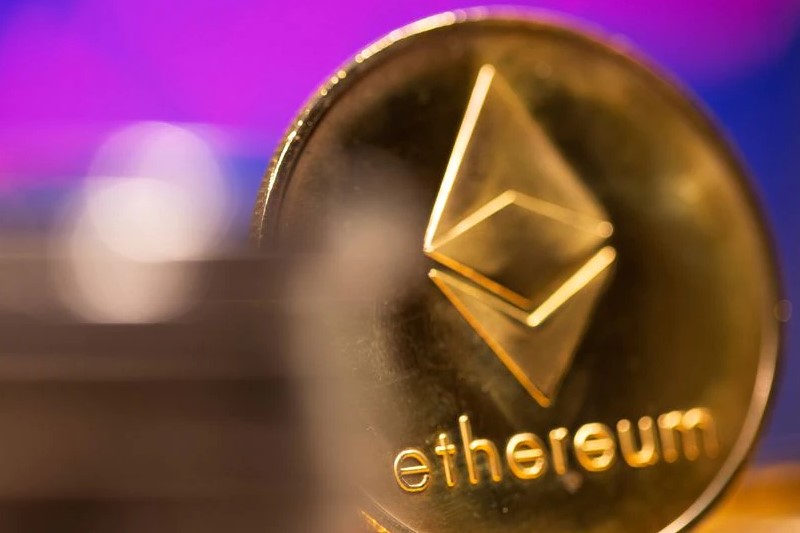[ad_1]
By Suzanne McGee and Hannah Lang
(Reuters) – Outflows from the Grayscale Trust could be reaching equilibrium after months of investor selling, Michael Sonnenshein, CEO of crypto asset manager Grayscale Investments, told Reuters in the latest episode of Inside ETFs.
Grayscale has been struggling to maintain dominance in the Bitcoin exchange-traded fund (ETF) market since rival offerings from nine other issuers emerged in January after the U.S. Securities and Exchange Commission (SEC) blocked the launch of the products following a decades-long dispute had approved with the crypto industry.
According to data from BitMEX Research, total outflows from Grayscale Bitcoin Trust (GBTC) exceeded $15 billion in the last three months, although the rise in Bitcoin value helped Grayscale's assets under management fall only slightly to 23 .13 billion US dollars fell.
“We believe the fund has started to reach some equilibrium where some of the expected outflows, whether it be some of the bankruptcy sale or some investors who may have made exchanges, are largely behind us,” Sonnenshein said.
Some of those outflows were the result of sales related to the bankruptcy of FTX and other defunct crypto companies, Sonnenshein told Reuters, as well as investors selling the Grayscale ETF only to immediately buy another one.
Many crypto companies that filed for bankruptcy in 2022 and 2023 had shares of Grayscale's then-trust on their balance sheets and sought to sell those shares once the product was converted into an ETF to repay creditors. This has yet to be fully reflected in the flow data.
While daily outflows are currently well below March's roughly $600 million, they are still well in the red. Grayscale recorded $303 million in outflows on Monday, according to BitMEX Research.
“As we look forward, it's again more about attracting more investors into the ecosystem (and) continuing to drive innovation on the product front,” Sonnenshein said.
Sonnenshein suggested that Grayscale could take steps to compete with newer rival offerings from BlackRock (NYSE:), Fidelity and others. BlackRock's iShares Bitcoin Trust, which charges a 0.12% fee, has collected around $17.8 billion in assets.
Last month, Grayscale announced it would seek approval from the U.S. Securities and Exchange Commission to spin off an as-yet-unspecified portion of the ETF's assets into a new lower-fee Bitcoin mini trust. The company declined to comment on the amount of these fees.
Currently, Grayscale charges a 1.5% percentage fee on its converted ETF, which is significantly higher than the average fee of about 0.25% charged by most of its newer competitors, although this fee is further reduced through waivers .
“Over time, as markets mature, we expect GBTC fees to decrease,” Sonnenshein said.
Bitcoin, the world's largest cryptocurrency, has been on a tear since the launch of ETFs, rising more than 60% this year.
Grayscale is also hoping to receive SEC approval to convert another of its products into a spot Ether ETF. The SEC must decide on other similar proposals by the end of May.

Grayscale sued the SEC after it rejected its application for a spot Bitcoin ETF in 2022. An appeals court sided with Grayscale and ordered the SEC to review its decision, paving the way for Bitcoin ETF approvals in January.
“We are optimistic that the SEC will be on the right side of history here and also allow these products to come to market,” Sonnenshein said.
[ad_2]
Source link


